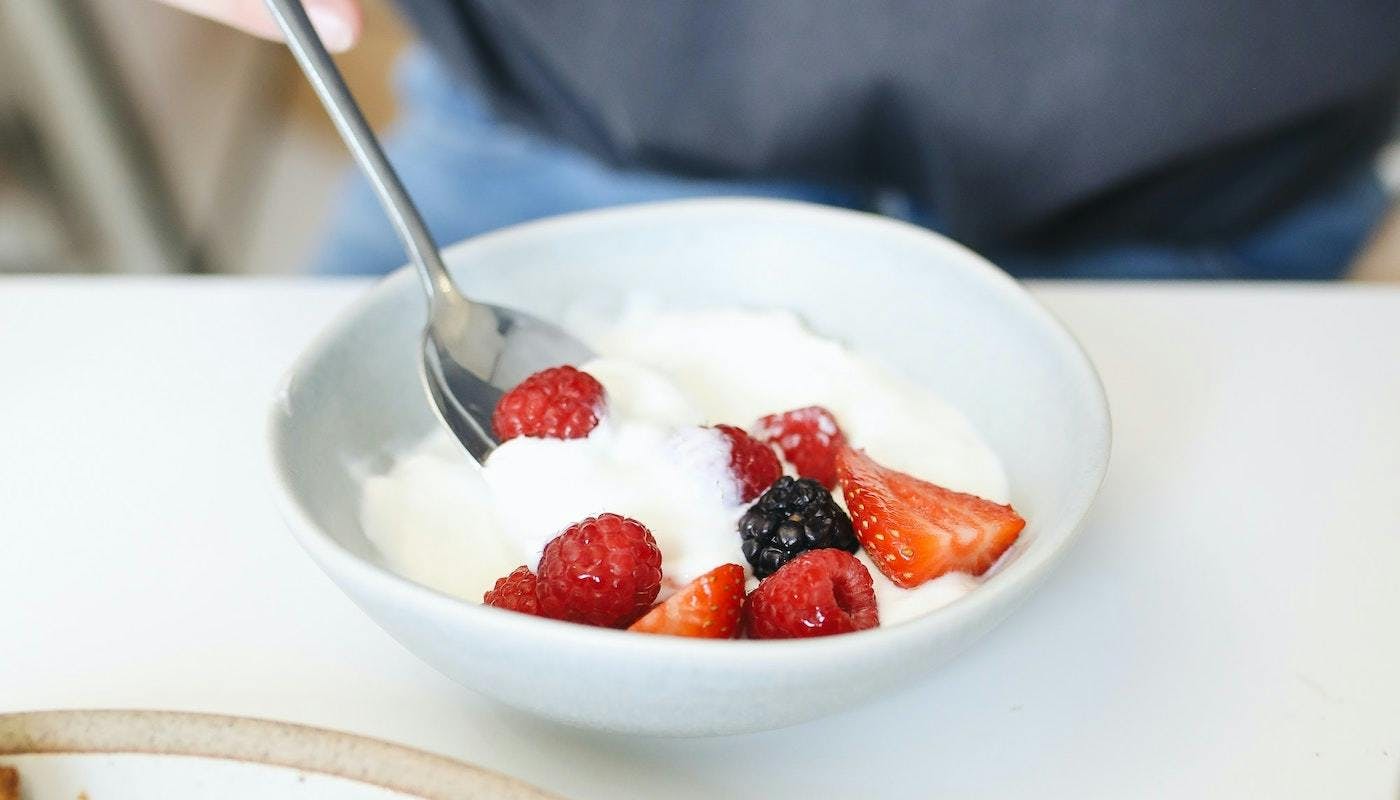Is Yogurt Healthy For Dogs?
Is Yogurt Healthy For Dogs?
Ever noticed that your dog loves lapping up a tasty lick of yogurt? If you’ve ever dropped some on the kitchen floor during breakfast, or left a bowl at dog height, you might have been surprised by how much they enjoy this dairy snack – after all, it doesn’t seem like an obvious element of a dog’s diet.
In this article, we’ll explore whether dogs can eat yogurt, the health benefits and hazards of feeding yogurt to dogs, and when it should definitely be avoided.
Can My Dog Eat Yogurt?
Technically, yes. Dogs can eat yogurt. It’s high in protein and calcium, and the probiotics are good for their digestion – just like humans. However the amount of dairy your dog eats should be limited and if they are lactose intolerant or allergic it should always be avoided.
If you do plan to feed your dog yogurt, it should always be as an additional treat and not as a main component of their diet. Plain, low-sugar yogurts that are high in live cultures, like Greek yogurt, are best for dogs as they have lower levels of lactose and more properties that are beneficial to their digestion.
However, there are some hazards to be aware of…
When Should Dogs Not Eat Yogurt?
Though yogurt and dairy are not toxic to dogs, some might have trouble digesting it. This can cause unpleasant gas, diarrhea, and vomiting. Some yogurts are also high in fat that can cause obesity and other complications for your dog’s health.
Xylitol is a sweetener often found in human food that is highly toxic to dogs, so always check the ingredients before giving some to your pet.
The best way to test whether or not your dog is likely to suffer some of the negative side effects of eating yogurt is to offer them a small amount and keep an eye on them for symptoms. If any occur, seek medical advice and avoid feeding it to them again. If they’re fine, then you can feed them yogurt now and again as a treat.
How Much Yogurt Can My Dog Eat?
As with all food and treats, the ideal portion will depend on their size, weight, usual calorie intake, activity level, and whether they have any existing health issues. If your dog is already overweight or on a calorie controlled diet, then yogurt should be avoided as if they were allergic or intolerant.
Dogs of a healthy weight can have some occasionally, so long as it doesn’t far exceed their recommended calorie intake. The general rule of thumb with dog treats is that they should not exceed 10% of their daily calorie intake.
Check the label of your yogurt and pay attention to the fat and calorie levels to measure the right serving size for your dog. Just a tablespoon should be enough.
If your dog is tired of their regular treats, it might be time to mix things up a little. Front of the Pack’s freeze-dried treats are made with raw animal protein, so they’re super healthy as well as super tasty. Choose from rabbit, salmon, or beef flavors that your dog is bound to love, and treat them with the peace of mind that you’ve found a snack that’s not detrimental to their health.
